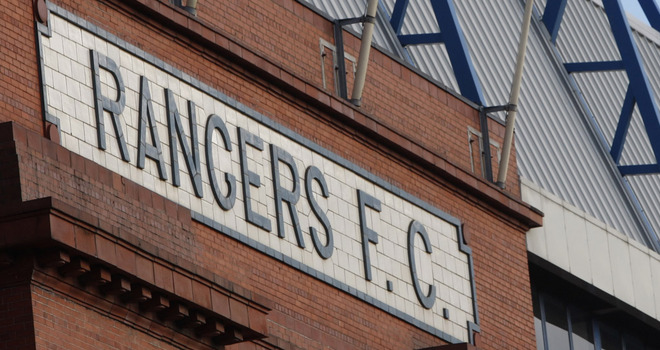No ruling on Rangers administrators Ticketus challenge
A judge has declined to rule on whether Rangers can rip up a £24.4m season-ticket deal with Ticketus.
Administrators Duff and Phelps wanted to tear up the agreement on the basis it could discourage bidders who may want to take over the club.
After a five-day hearing at the Court of Session, Lord Hodge said he did not have enough information about bids for Rangers to make a ruling.
However, he declined to give Ticketus preferential treatment as creditors.
The judge said Ticketus had no security over the assets of Rangers and was a simple creditor with the same rights as others owed money by the club.
Rangers’ joint administrator Paul Clark, from Duff and Phelps, welcomed that decision, saying it was meant that Ticketus only had contractual rights and did not have a claim on assets.
He said: “It is clear from the judgement that, as administrators, we have the statutory right and powers to have the company (the Club) refuse to honour the Ticketus arrangements if such a decision would be in the interests of creditors generally.”
The Ticketus deal was struck by Rangers owner Craig Whyte during his takeover in May last year.
Mr Whyte used money from the Ticketus deal to complete his purchase of the Ibrox club, taking over its £18m debt from Lloyds Banking Group.
Potential investors
Mr Clark and David Whitehouse were appointed as administrators over a month ago after HMRC lodged a petition over the non-payment of about £9m in PAYE and VAT following Mr Whyte’s takeover.
The administrators claimed the Ticketus deal, which would give season ticket revenues to the firm for the next three seasons, could deter potential investors.
Season ticket sales are one of the main sources of income for Rangers, generating about £12m a year.
Their counsel, David Sellar QC had claimed at least one of the four known bidders would not carry on if the contract remained.
Ronald Clancy QC, for Ticketus, had argued that the company which runs Rangers should not be allowed to come out of administration without honouring its contracts.
He urged the judge to say the deal should stay.
A summary of Lord Hodge’s decision said he “declined to give a direction” because “he considered that the court had not been given sufficient information to allow it to make such a ruling”.
One of the bidders to take over Rangers is the Blue Knights consortium, led by Paul Murray, which includes Ticketus.
After the verdict, a statement from Ticketus said the Blue Knights bid could “achieve a rapid resolution for the club and provide it with a future that is free of unnecessary uncertainty”.
“By incorporating Ticketus into their bid, the consortium is uniquely able to secure this outcome,” it said.
Blue Knights
The Ticketus statement said: “The court has made it clear today that the Ticketus contract cannot be breached unless there is substantial evidence that by doing so the administrators are able to significantly improve returns for creditors and improve the chance of returning the club to a going concern.
“Given the strength of the Blue Knights consortium’s bid, and Ticketus’s role in this, with its contract remaining valid and enforceable, we question the ability for this to happen.”
Ticketus said it would “do everything necessary” to defend its position and ensure its contract was honoured.
Administrator Mr Clark accepted the judge’s refusal to give guidance because details of the competing bids were not divulged.
He said: “This would most certainly not have been in the interests of creditors or the football club, particularly since the party which were subject to the legal proceedings also have an active interest in a bid for the club.”
He added: “To date, our discussions with bidders have been very constructive and we will continue these discussions with all parties, including the consortium in which Ticketus is involved, in an effort to achieve a successful outcome.
“We intend to create a shortlist of bids at the earliest opportunity and have no doubt today’s decision will have a significant bearing on the proposals put forward by bidders to date.”
Once the administrators have assessed the potential bids, they will give one party preferred bidder status.
That party would assemble a pot of cash, including its own bid, and would approach creditors to ask for a company voluntary agreement, seeking a pence-in-the-pound deal to repay them in part so that the club can exit administration.
If the preferred bidder cannot secure a deal with holders of 75% of the value of the debt, then there remains a possibility that the club could be liquidated.









